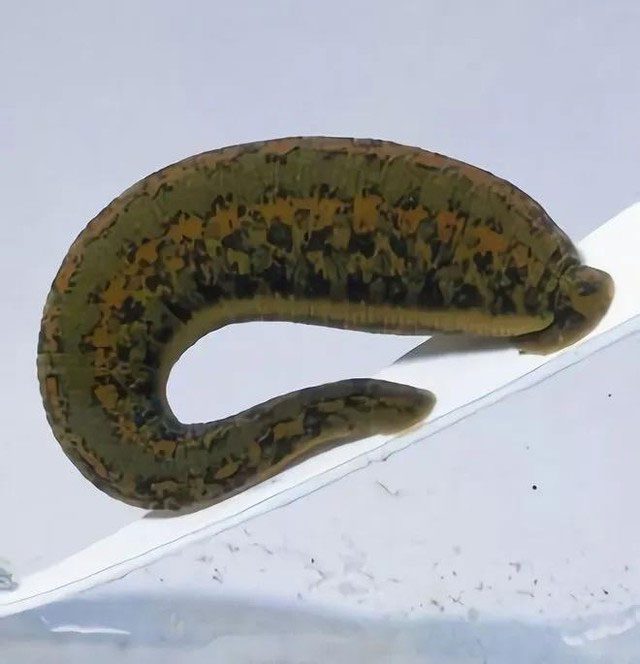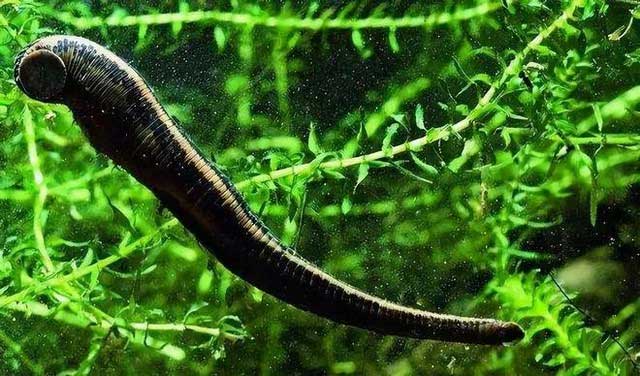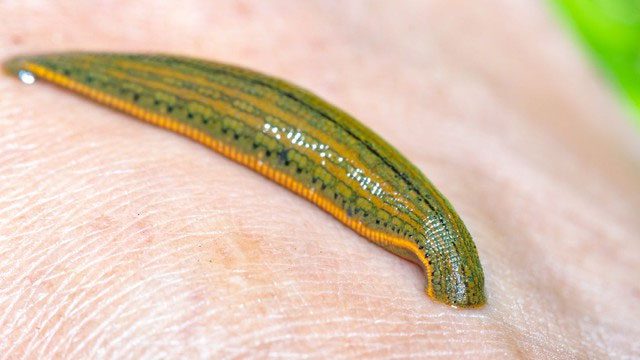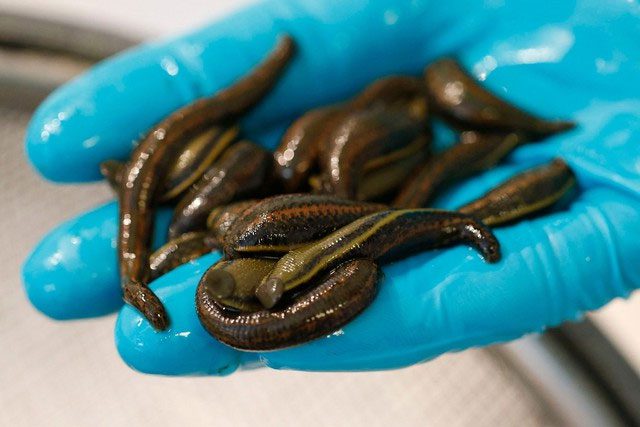How Can Leeches Invade the Human Body and Survive in the Nasal Cavity?
According to experts, the answer lies in the biological characteristics and habitat of leeches.
Leeches are blood-sucking parasites that are particularly sensitive to temperature and light. Leeches’ larvae, so small that they are difficult to see with the naked eye, often exist in aquatic environments such as streams or natural water sources. When humans inadvertently use untreated water, these larvae can easily invade the body.
Why Do Leeches Choose the Nasal Cavity as Their “Home”?

Leeches are blood-sucking parasites.
The nasal cavity, with its stable temperature, high humidity, and rich oxygen supply, is an ideal environment for leeches to thrive. From a tiny larva, within just half a month, they can grow to sizes up to 5 cm, or even more if not detected. While the stomach’s strong acidic environment can destroy leech larvae, parts of the body such as the nose, throat, or trachea provide ideal conditions for them to suck blood and grow.
Surprising Research on Leeches as Parasites
Research by Reil, an expert in parasitology, has provided significant information about how leeches develop in the human body. He once conducted a self-experiment by allowing leech larvae to parasitize his body. Initially, he felt no discomfort, but after 10 days, symptoms began to appear, including periodic nosebleeds and severe nasal congestion. Through endoscopy, he observed that within just 3 weeks, the larvae had grown from smaller than a grain of rice to a leech measuring 3-4 cm long, large enough to obstruct the airway.

The nasal cavity is an ideal environment for leeches to thrive.
What surprises the scientific community is the rapid growth rate of leeches. When removed from the body, a leech can weigh up to 200 times its original weight. This phenomenon not only illustrates the perfect adaptation of leeches in the human body but also shows their ability to continuously suck blood without causing immediate pain to the host.
Leeches: From Scary Creatures to “Soft Gold in Water”
Although recognized as dangerous parasites, leeches have incredible medical value. In traditional Chinese medicine, dried leeches are used to treat diseases related to blood stasis, heart pain, abdominal pain, and even amenorrhea. The high value of leeches in medicine is due to hirudin, a powerful anticoagulant secreted during the blood-sucking process. Hirudin not only prevents the formation of blood clots but also aids in treating cardiovascular diseases, lowering blood lipids, and reducing inflammation.
In modern medicine, leeches are also used in reconstructive surgery to enhance blood circulation in grafted tissues. Additionally, recent studies indicate that hirudin may help treat certain types of hair loss and improve joint conditions.

Leeches have incredible medical value.
With their significant medical value, leeches have been dubbed “soft gold in water.” The price of dried leeches in the Chinese market can reach up to 1,500 yuan/kg (approximately 5 million VND). This not only reflects their economic value but also emphasizes their role in both traditional and modern medicine.
How to Prevent Leeches from Infesting?
Aside from their medical value, leeches still pose a health risk if they inadvertently invade the body. To prevent this, experts recommend:
- Use clean water: Always boil water before use, especially when drinking from natural sources.
- Avoid uncooked food: Raw vegetables or dishes that have not been heat-treated may harbor leech larvae.
- Limit direct contact with stream water: When participating in outdoor activities, avoid immersing yourself in or allowing your skin to directly contact flowing water.
If you suspect you have ingested a leech or its larvae, you can gargle with concentrated salt water to inactivate them. In case of unusual symptoms, seek medical attention promptly.

Leeches still pose a health risk if they inadvertently invade the body.
From creatures that seem frightening like leeches, we can uncover their immense medical potential, as well as recognize the risks they can pose. Above all, understanding and respecting nature will help humans live more harmoniously with the world around them.
With advancements in both traditional and modern medicine, leeches have demonstrated that even the smallest creatures can play a significant role in protecting health and enhancing human life.


















































